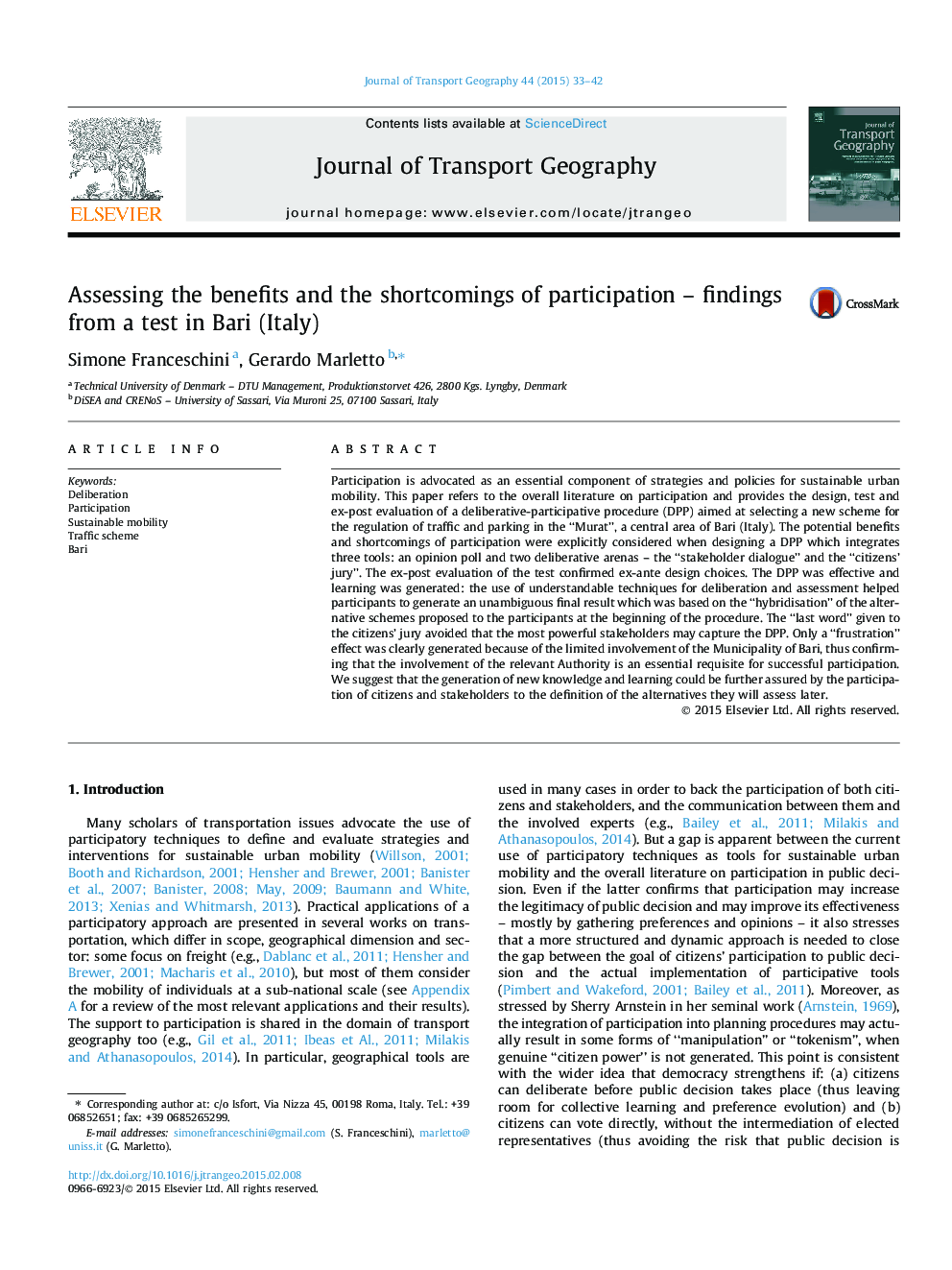| Article ID | Journal | Published Year | Pages | File Type |
|---|---|---|---|---|
| 1059036 | Journal of Transport Geography | 2015 | 10 Pages |
•A deliberative-participative procedure (DPP) is used to select a new traffic scheme.•Benefits and shortcomings of participation were considered when designing the DPP.•The ex-post evaluation of the DPP test confirmed ex-ante design choices.•The limited involvement of the Municipality generated a “frustration” effect.•The “learning” effect increases if citizens participate to the design of traffic schemes.
Participation is advocated as an essential component of strategies and policies for sustainable urban mobility. This paper refers to the overall literature on participation and provides the design, test and ex-post evaluation of a deliberative-participative procedure (DPP) aimed at selecting a new scheme for the regulation of traffic and parking in the “Murat”, a central area of Bari (Italy). The potential benefits and shortcomings of participation were explicitly considered when designing a DPP which integrates three tools: an opinion poll and two deliberative arenas – the “stakeholder dialogue” and the “citizens’ jury”. The ex-post evaluation of the test confirmed ex-ante design choices. The DPP was effective and learning was generated: the use of understandable techniques for deliberation and assessment helped participants to generate an unambiguous final result which was based on the “hybridisation” of the alternative schemes proposed to the participants at the beginning of the procedure. The “last word” given to the citizens’ jury avoided that the most powerful stakeholders may capture the DPP. Only a “frustration” effect was clearly generated because of the limited involvement of the Municipality of Bari, thus confirming that the involvement of the relevant Authority is an essential requisite for successful participation. We suggest that the generation of new knowledge and learning could be further assured by the participation of citizens and stakeholders to the definition of the alternatives they will assess later.
